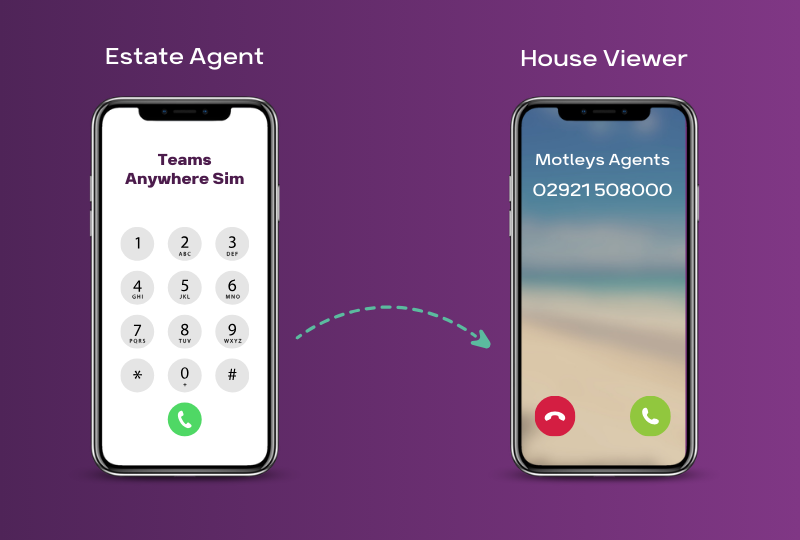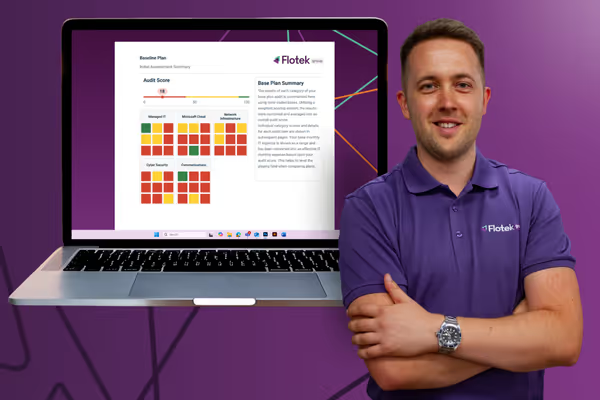
A Guide To WiFi Password Security For Businesses
A Guide To WiFi Password Security For Businesses
A robust WiFi password is the first line of defence in securing a business wireless network. Setting overly simplistic or weak passwords leaves networks vulnerable to unauthorised access and cyberattacks. This makes understanding WiFi password best practices critical for effectively protecting company resources and data. We understand the importance of cybersecurity for businesses, so in this guide, we will cover techniques and guidelines that businesses can follow to implement strong, secure passwords across their wireless networks.
Keep reading!
How can I secure my business Wi-Fi?

Here are some best practices businesses should implement to properly secure their WiFi networks:
- Use long, complex passwords that are hard to crack. Incorporate upper/lowercase letters, numbers, and symbols.
- Change WiFi passwords frequently - at minimum, every 60-90 days.
- Have unique passwords for guest and employee networks to compartment access.
- Never openly post or share passwords. Only provide to authorized users.
- Actively monitor the wireless network for unauthorized devices.
- Keep personal devices on the guest network separate from business devices and data.
- Work with IT security specialists to audit the network and implement appropriate security controls specific to your business risks.
- Taking a proactive approach to WiFi security and having strong fundamental password protections makes it far more difficult for hackers to penetrate business wireless networks.
What Are The Best Practices For Business Wi-Fi Passwords?

Here are some key measures businesses should take to maximise the strength of their WiFi passwords:
Length And Complexity
Longer, more complex passwords with multiple character types are harder to crack:
- Use passwords of at least 12 characters, or ideally 14 or more.
- Incorporate upper and lowercase letters, numbers, and symbols to increase complexity.
- Avoid common words, phrases, or patterns that are easier to guess.
- Consider using a passphrase of random words for greater security than a typical password.
Regular Changes
Rotating WiFi passwords periodically is crucial to thwart unauthorized access:
- Change the password every 60-90 days at a minimum.
- Immediately change passwords if a business suspects a breach.
- Develop a schedule and notify employees of upcoming changes to minimize disruption.
Different Passwords Across Networks
Businesses should use a unique password for the guest WiFi network and a separate password for the employee WiFi network. Having distinct passwords compartmentalizes access:
- If a hacker compromises the guest password, they cannot access the employee network and vice versa.
- The employee network password can be longer and more complex since it protects business systems, while the guest password can be simpler for convenience.
Secure Password Storage
Storing WiFi passwords securely maintains exclusive access:
- Never openly post or share WiFi passwords in the office or online.
- Store employee network passwords in secure digital password manager software with access controls.
- Only provide guest passwords verbally at reception or printed on receipts. Never email or text.
What Are The Guidelines For Secure Business WiFi Passwords?

Here are some key guidelines businesses should follow when creating and managing WiFi network passwords:
Use Password Generators
Specialized password generator tools create extremely strong, random passwords:
- Incorporate a wide range of uppercase, lowercase, numbers and symbols.
- Generate passwords with greater complexity than a human typically creates.
- Adjust password length setting to meet business requirements.
Educate Employees On Best Practices
Train employees in proper password hygiene, like never sharing passwords or using the same across networks. Set clear rules, policies, and procedures around business wireless network access.
Apply Password Manager Software
Centralised password manager programs allow secure storage and controlled access to WiFi passwords:
- Managers can securely share passwords with authorized employees.
- Access can be traced, and passwords can be changed after an employee exits.
Use Wireless Network Monitoring Tools
Actively monitor the wireless network and be alerted about unauthorized devices accessing the WiFi. Rapidly change passwords if a rogue device is detected.
Separate Personal And Business Devices
Employees should keep personal devices on the guest WiFi network so compromised home devices cannot access inner business networks. Maintain strict network segmentation.
Consult With IT Security Specialists
Work with experienced IT security professionals to audit your wireless network's password security and recommend improvements tailored to your specific business environment and risks.
Our Final Word
A lax approach to WiFi password policies leaves businesses dangerously exposed. Hacking of weak passwords lets attackers stealthily access company networks and data. By leveraging password generator tools, frequently rotating passwords, applying password manager software, and segregating networks, businesses can effectively fortify their first line of wireless network defence. Robust WiFi password protection combined with vigilant network monitoring and IT policies deliver a multilayered strategy to secure critical business systems and information. If you are concerned about your cybersecurity or you are looking to improve your business WiFi, get in touch.






.jpg)



























.avif)




%20(4).avif)

%20(1).avif)
.avif)
%20(1).png)
.png)






.avif)
.avif)
%20(1).avif)
.avif)
.avif)